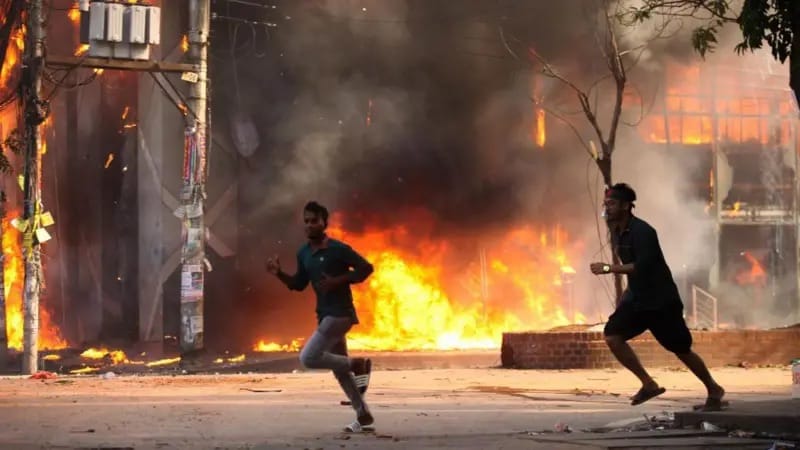Bangladesh crackdown: UN alleges crimes against humanity in deadly protest repression
The United Nations has accused Bangladesh’s former prime minister, Sheikh Hasina, and her government of orchestrating a violent crackdown against protesters in a desperate attempt to maintain power—acts that could constitute “crimes against humanity.”

The United Nations has accused Bangladesh’s former prime minister, Sheikh Hasina, and her government of orchestrating a violent crackdown against protesters in a desperate attempt to maintain power—acts that could constitute “crimes against humanity.”
A UN human rights investigation found that as many as 1,400 people, mostly civilians, were killed in last year’s mass opposition protests, allegedly at the hands of security forces. The findings paint a grim picture of state-sanctioned brutality, with investigators concluding that there was “an official policy to attack and violently repress anti-government protesters” led by political leaders and senior security officials.

Sheikh Hasina, who had ruled Bangladesh for 15 years, fled to India by helicopter last August, just before demonstrators stormed her residence. The crisis began with student-led protests against civil service job quotas but quickly escalated into a nationwide movement demanding Hasina’s resignation after a lethal police crackdown. The protests resulted in thousands of injuries in what became Bangladesh’s deadliest unrest since its 1971 war of independence.
“Among our key findings, there are reasonable grounds to believe that officials of the former government, its security and intelligence apparatus, together with violent elements associated with the former ruling party, committed serious and systematic human rights violations,” UN human rights chief Volker Türk said in Geneva.
The UN team documented a harrowing array of abuses, including point-blank shootings of protesters, deliberate maiming, arbitrary arrests, and torture. Shockingly, children were also targeted—up to 13% of those killed were minors, according to the report.
“The brutal response was a calculated and well-coordinated strategy by the former government to hold onto power in the face of mass opposition,” Türk stated. “The evidence gathered by my office paints a disturbing picture of rampant state violence and targeted killings.”
The report detailed “hundreds of extrajudicial killings, extensive arbitrary arrests and detentions, and torture,” all allegedly carried out with the direct knowledge and coordination of Bangladesh’s top political and security leadership.
The UN’s findings were requested by Bangladesh’s caretaker leader, Muhammad Yunus, who pledged his interim government’s commitment to “transforming Bangladesh into a country in which all its people can live in security and dignity.” However, the death toll presented by the UN significantly exceeds the 834 fatalities estimated by Yunus’ government.
The investigation involved a team of human rights experts, a forensics physician, and a weapons specialist, who conducted over 230 interviews with survivors, witnesses, and insiders. They reviewed medical case files, photos, videos, and other evidence to support their conclusions.
“Former senior officials directly involved in handling the protests and other inside sources described how the former prime minister and other senior officials directed and oversaw a series of large-scale operations, in which security and intelligence forces shot and killed protesters or arbitrarily arrested and tortured them,” the report stated. It further detailed patterns of security forces “deliberately and impermissibly killing or maiming protesters, including incidents where people were shot at point-blank range.”
While the report primarily attributes the violence to government security forces, it also raises concerns over attacks on individuals perceived to be government loyalists, as well as some religious and ethnic groups. The UN Human Rights Office has called for a broader investigation into these incidents as well.
The findings add to mounting pressure on Hasina and her Awami League Party, with international bodies now scrutinizing the possibility of holding those responsible accountable for crimes against humanity.














